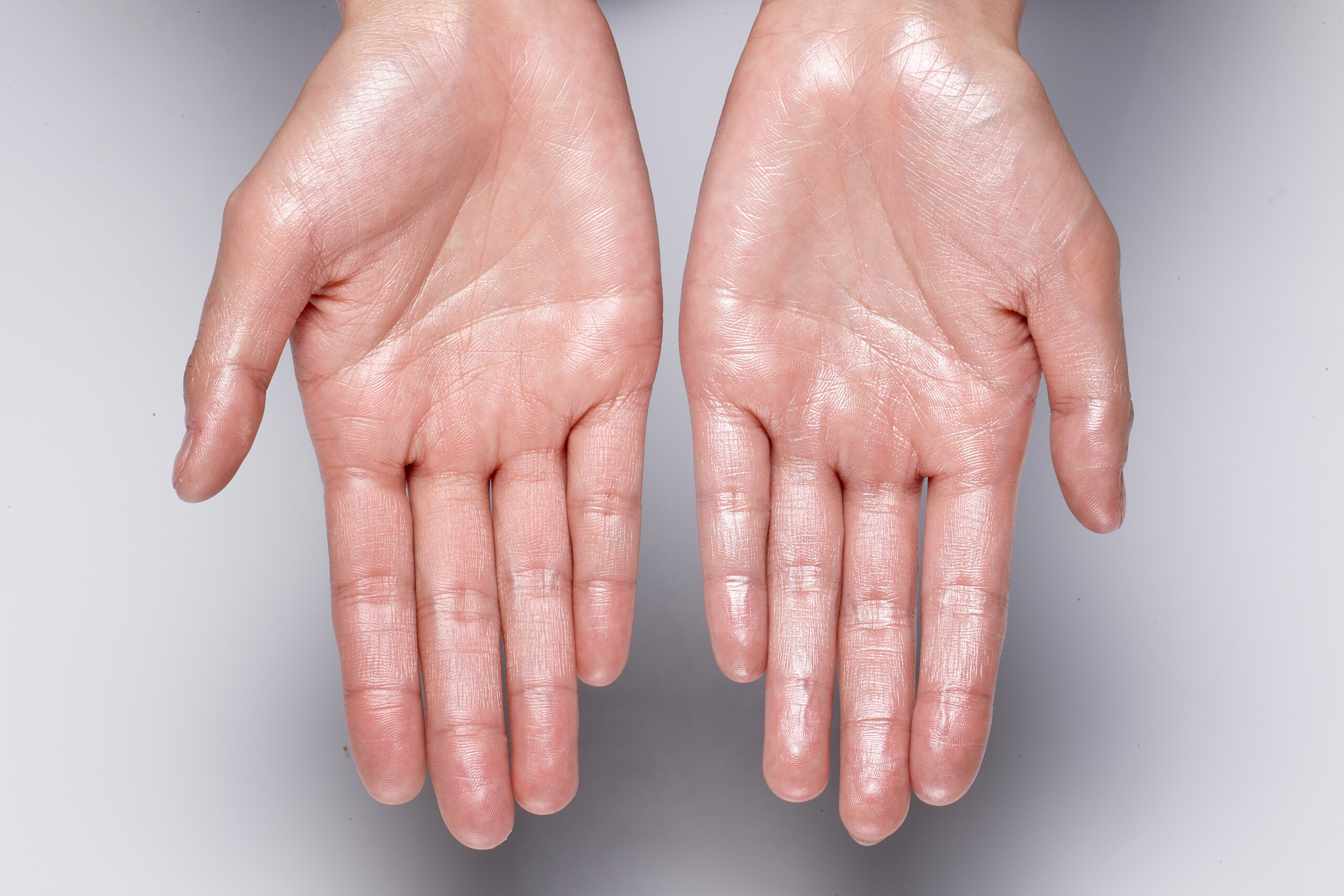How to Stop Sweaty Hands: Expert Dermatology Advice for Taking Care Of Excessive Sweating
Understanding the Origin of Excessive Sweating and Its Influence On Life
While it is generally comprehended as a physiological response to manage body temperature level, the triggers for excessive sweating can differ extensively among individuals, incorporating not only physical factors but emotional and likewise emotional components. By delving right into the origin causes of hyperhidrosis and discovering its diverse results, a much deeper understanding of this pervasive problem can be acquired, losing light on the complexities that people grappling with extreme sweating browse on an everyday basis.
Physiology of Sweat Glands
The guideline of sweat production, an important physiological process, is primarily regulated by the activity of sweat glands distributed throughout the human body. Sweat glands are classified into two primary kinds: eccrine and apocrine glands.
When the body temperature increases, either because of physical task, heats, or emotional stress and anxiety, the nerve system sets off the gland to generate sweat. This sweat is made up primarily of water and electrolytes like sodium and chloride. The process of sweat manufacturing is crucial for maintaining the body's interior temperature within a slim, ideal array, highlighting the critical role sweat glands play in human physiology.
Triggers for Excessive Sweating
In comprehending the source of excessive sweating, it is critical to recognize the triggers that can lead to this physiological response. Excessive sweating, also known as hyperhidrosis, can be prompted by various elements, both physiological and environmental. One usual trigger is psychological anxiety or anxiousness, which can boost the body's gland to create more sweat than is required for cooling. Physical exertion, heats, and spicy foods are additionally recognized to activate extreme sweating in individuals prone to this condition. Specific medical problems like hyperthyroidism, diabetes mellitus, or menopause can add to extreme sweating as well.
Additionally, drugs such as some antidepressants, opioids, and specific supplements can additionally serve as triggers for hyperhidrosis. Recognizing these triggers is vital in managing extreme sweating effectively - Sweaty hands treatment. By identifying and attending to the specific triggers that trigger too much sweating in an individual, doctor can establish tailored treatment strategies to relieve this condition and enhance the person's quality of life
Medical Conditions Associated
Connected with too much sweating are various medical problems that can aggravate this physiological action. One usual problem is hyperhidrosis, a disorder defined by unusually raised sweating that exceeds the body's thermoregulatory needs. This can materialize in focal locations like the hands, soles, underarms, or face, influencing a person's lifestyle due to social embarrassment and pain.
Furthermore, endocrine problems such as hyperthyroidism, diabetic issues, and menopausal hot useful content flashes can also lead to too much sweating. Hyperthyroidism creates an overproduction of thyroid hormonal agents, increasing metabolic rate and activating sweating.
Furthermore, infections like endocarditis, tuberculosis, and hiv have been linked with evening sweats, a typical sign understood to disrupt sleep and influence general health. These clinical conditions highlight the varied variety of underlying aspects that can add to excessive sweating, requiring detailed evaluation and management by medical care experts.
Emotional and emotional Aspects

Influence On Social Interactions
Too much sweating can have profound impacts on a person's ability to engage pleasantly in social interactions. The visible indicators of sweat stains or wet spots on apparel can result in humiliation and self-consciousness, creating individuals to withdraw from social scenarios. This withdrawal can influence relationships, limitation social tasks, and prevent expert and individual development.

Furthermore, the stress and anxiety and self-confidence problems originating from too much sweating can influence interaction and social abilities. People might battle to concentrate on discussions, get involved in team tasks, or reveal themselves confidently. This can result in feelings of isolation and loneliness, as social connections become testing to keep.
Verdict

While it is typically recognized as a physiological reaction to manage body temperature level, the triggers for too much sweating can vary commonly among individuals, incorporating not only physical factors yet emotional and likewise psychological elements. By diving into the root triggers of hyperhidrosis and exploring its complex impacts, a deeper understanding of this prevalent issue can be obtained, dropping light on the intricacies that individuals grappling with excessive sweating browse on a daily basis.
Physical effort, high temperatures, and spicy foods are likewise known to cause too much sweating in individuals susceptible to this condition. By identifying and resolving the particular triggers that motivate extreme sweating in a specific, health care providers can establish personalized therapy strategies to minimize this problem and improve the individual's top quality of life.
Excessive sweating can have extensive results on an individual's capability to involve conveniently in social communications.